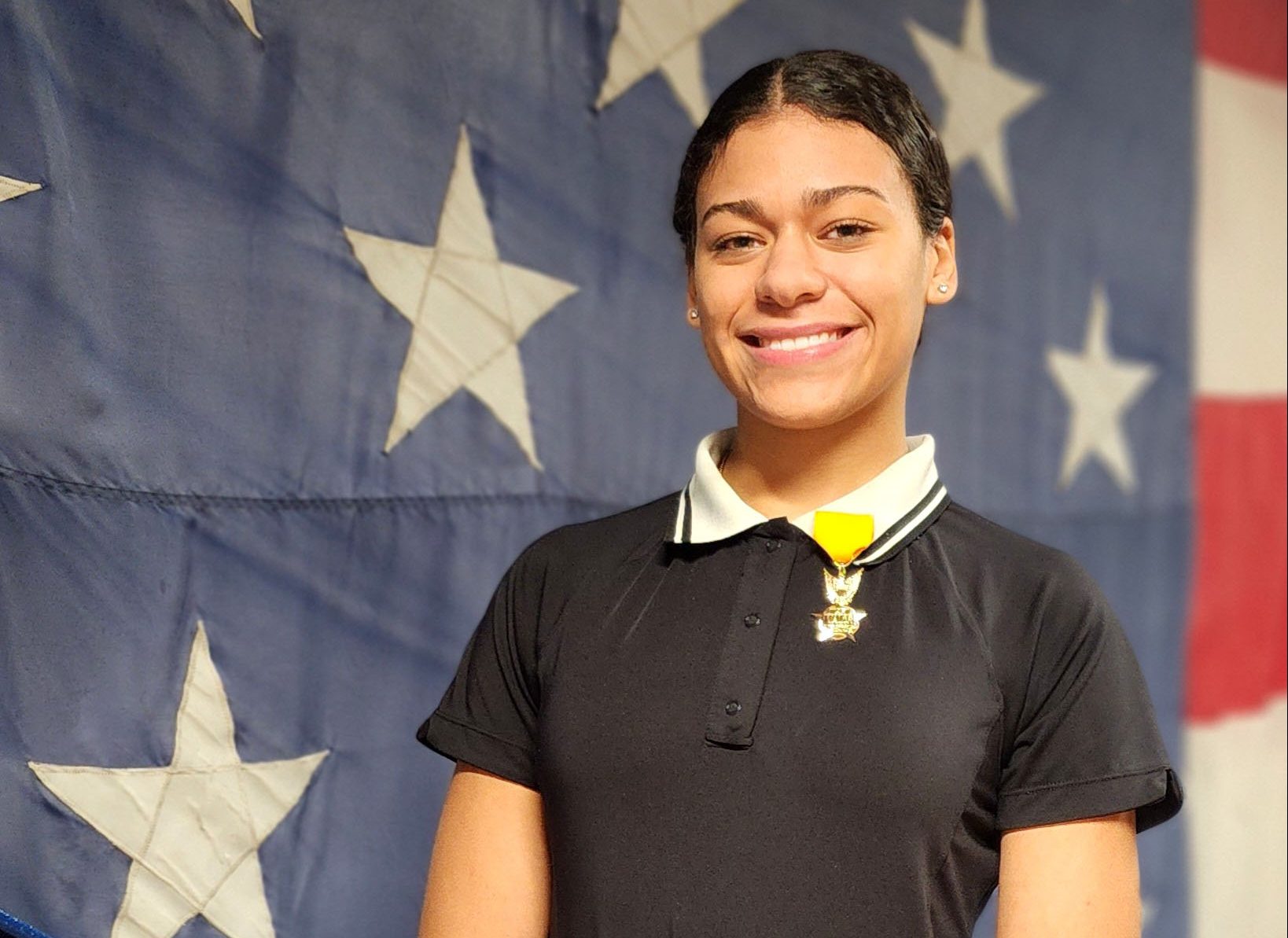
Everyone confronts a crisis differently. Some walk away, others jump into action. Air Force ROTC Cadet Aleksyia LeClere (’26 criminal justice, psychology) chose the latter last fall when a friend on campus suffered a severe mental health episode. LeClere’s quick thinking and compassion prevented the friend from harming themselves and initiated their journey toward renewed health and healing.
For her bravery and willingness to act, LeClere recently received the Air Force ROTC Gold Valor Award, a national award given to an Air Force ROTC cadet who commits an act of heroism that involves personal risk of life.
“That level of risk is unusual, which means this award is not given out frequently,” said Lt. Col. Eric Lopez, commander of Iowa State’s Air Force ROTC and professor and chair of the Department of Air Force Aerospace Studies, who nominated LeClere for the award.
Humble thanks
Thanks to LeClere’s quick action and willingness to get involved, the incident ended peacefully with her friend getting help from police officers and counselors.
“I’m not going to say I’m special, because it’s just what I felt I needed to do,” LeClere said. “That flight or fight response is obviously human nature. In order to do something like that, to stop someone from hurting themselves, you need to be able to push that aside, obviously not put yourself in danger, but do what you can with the circumstances.”
While LeClere appreciates the Air Force ROTC award, she says it doesn’t truly belong to her.
“I’m honored to have received something like this, but at the same time, I don’t feel like I deserve it,” she said. “In my opinion, the medal is not mine. The only reason I can truly accept it is for those who deal with mental health issues, for those who go through these daily struggles with anxiety and depression and are still here. They are still fighting, still trying their best, and doing what they can.”
Putting others first
Helping others is nothing new for LeClere.
“Ever since I was a kid, I always had a fascination with people, understanding how they work, how they function. From an early age, I wanted to do something in that aspect,” she said.
Initially, she thought she might become a firefighter. But a family friend who is a police officer helped LeClere develop a passion for helping others through police work. That evolved into taking criminal justice and forensics classes in high school, ultimately leading her to pursue a criminal justice degree at Iowa State. She also wanted to dig deeper into what made people tick, so she paired her criminal justice major with a psychology major.
“With psychology, I felt like it would be a good way to understand people … knowing what people have been through, how they tick,” she said.
Future plans
Following graduation from Iowa State, LeClere will be a commissioned officer in the U.S. Air Force for at least four years. She is considering becoming a pilot or pursuing a position with the Air Force’s Office of Special Investigations. Following her military commitment, LeClere would like to join the FBI or become a crime scene investigator. Whichever path she chooses, she will continue to help people and hopes others will do the same.
“My biggest piece of advice would be to listen. Listen with your heart, not just with your mind. Your mind can say, ‘Oh, they’re perfectly fine, they are probably just going through something right now. It’s whatever.’ Maybe they are acting a little bit different or they’re quieter than usual, they’re not wanting to hang out. Just check up on them, even if there’s nothing wrong. At least you can say you were there for that person, making sure they’re OK.”